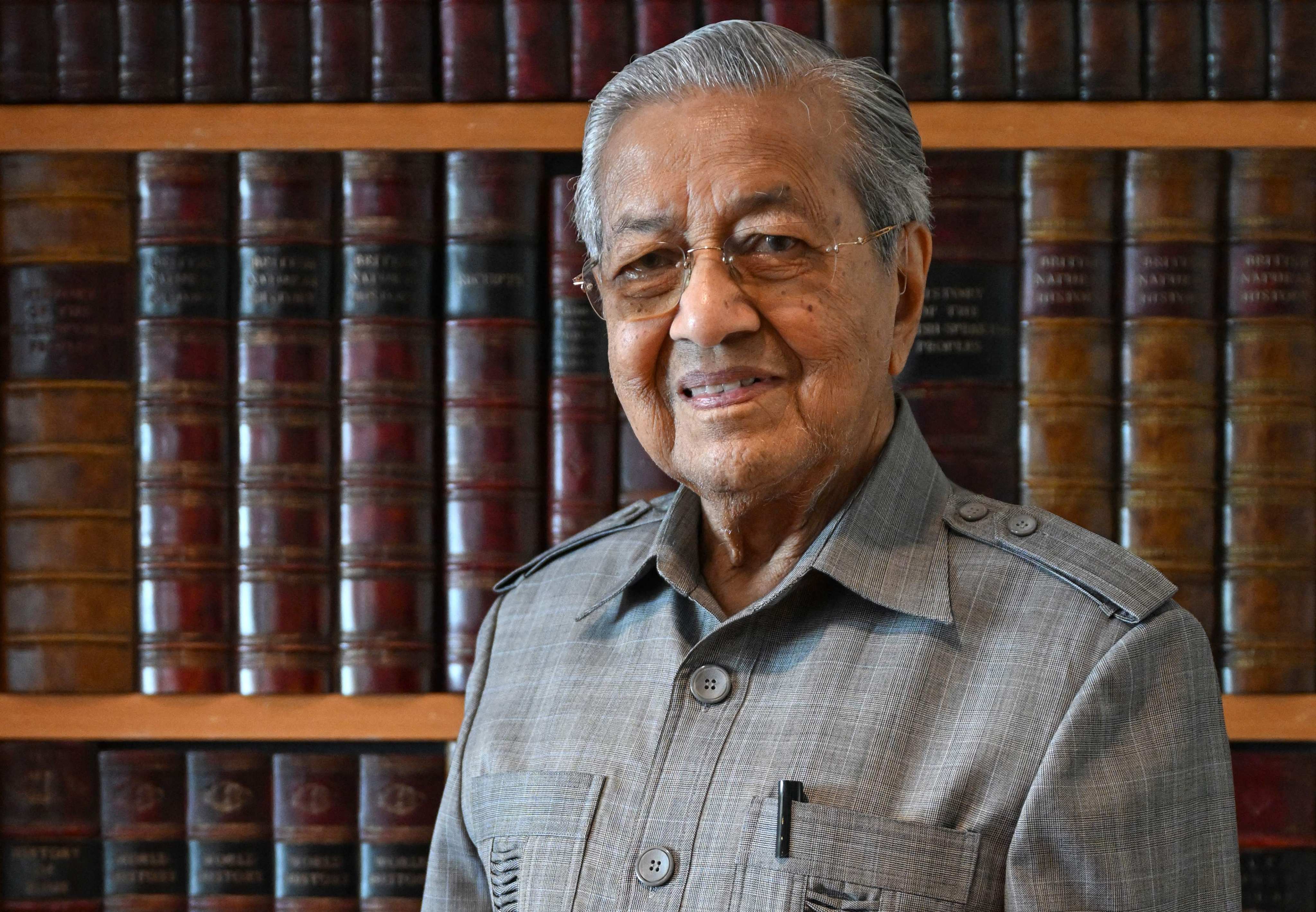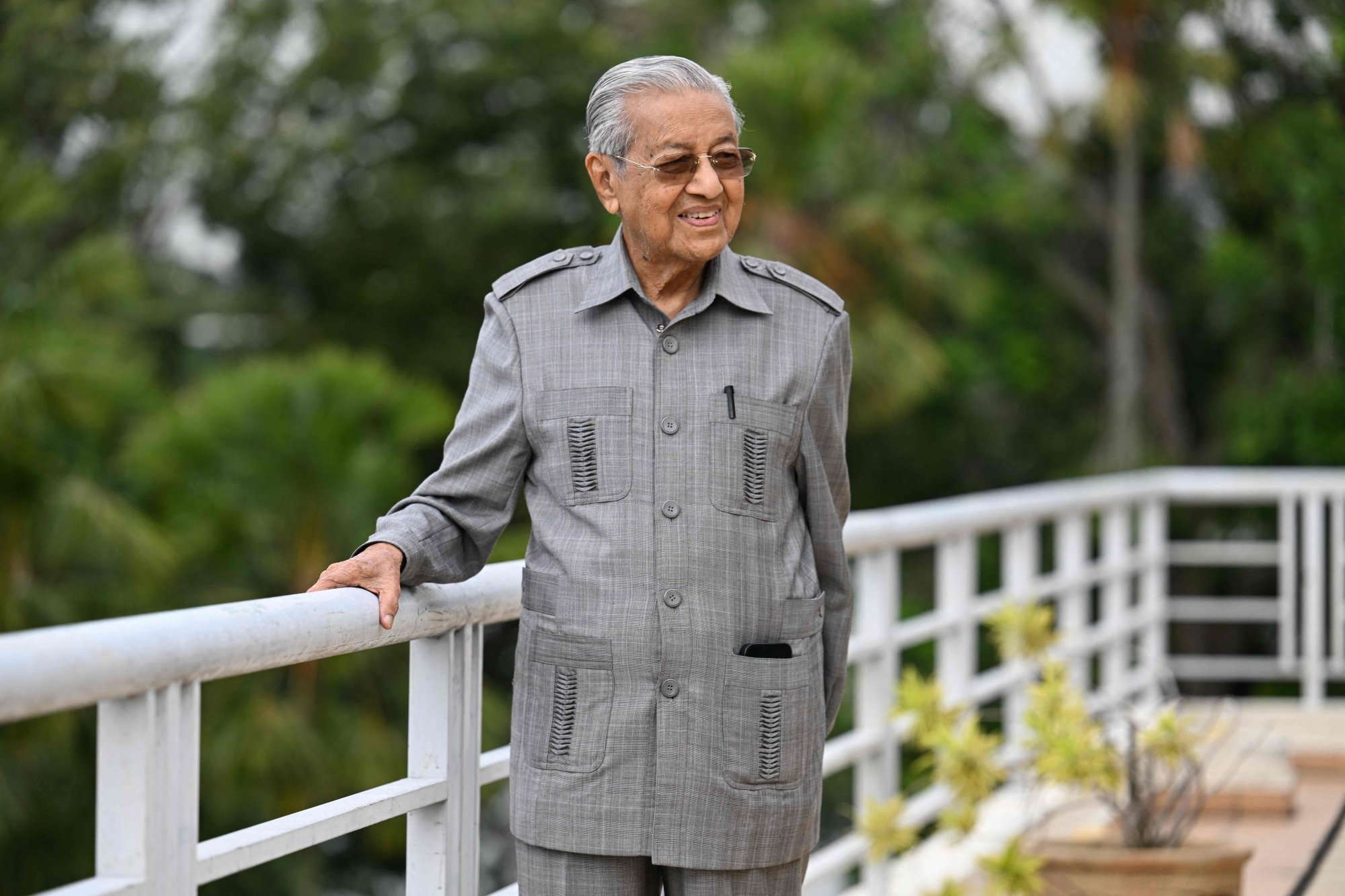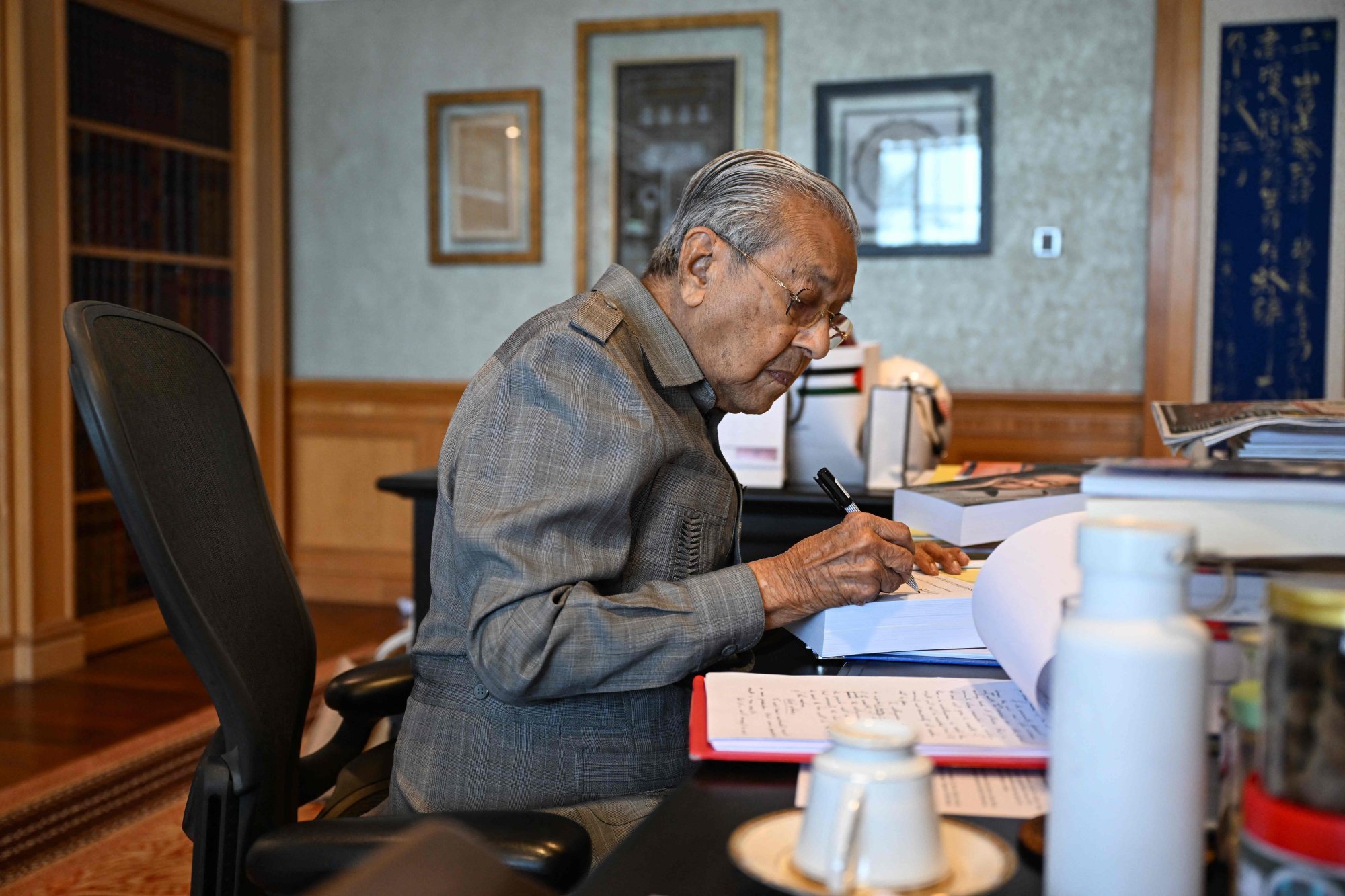Ex-Malaysia PM Mahathir warns Trump’s tariffs will hurt US: ‘American products cannot compete’
The 99-year-old warned Trump’s tariffs will backfire, and suggested the 10-member Asean bloc can weather the storm

US President Donald Trump’s unilateral tariffs will hurt Americans more than the countries targeted by them, according to former Malaysian Prime Minister Mahathir Mohamad, who warns that the US cost of living will increase.
“American products cannot compete with the rest of the world which produces cheaper products, so the American economy is going to suffer. I believe that within a short while, Trump will have to reverse his decision,” Mahathir said in a recent interview with Kyodo News.
The 99-year-old, who served as Malaysian leader from 1981 to 2003 and from 2018 to 2020, said Trump’s series of steep tariffs mean items such as Apple iPhones produced in China and India will become much dearer.
“If America applies high tariffs on imports of iPhones into America, then the iPhone will cost more in America because of the tariffs. So Americans will suffer from the high cost.”

The levies on US trading partners were announced on April 2 but put on hold a week later for 90 days by Trump, except for China, on which he raised duties to 145 per cent.
But on Monday, Beijing and Washington agreed to reduce tariffs during a 90-day cooling-off period. By May 14, US tariffs on most Chinese imports will drop from 145 per cent to 30 per cent, while Chinese duties on US goods will decrease from 125 per cent to 10 per cent, according to a statement following a briefing in Geneva.
The 10 members of the Association of Southeast Asian Nations (Asean) were set to be hit by tariffs of between 10 and 49 per cent, including 24 per cent for Malaysia.
Mahathir said Asean can weather the impact of the tariff hikes with intergroup trade and business with countries other than the United States.
“We lose the American market, but we still have the world market,” he said.
Mahathir, who has been advocating for peace through the activities of an organisation he founded, said retaliation is not an answer to the US tariffs, echoing the stance that Asean trade ministers took at a meeting last month, at which they also agreed to hold dialogue to address concerns over the tariffs’ impact on the region’s economy.
Asean members have enjoyed good cooperation, though not perfect, according to Mahathir, who was Malaysian leader when the group admitted Myanmar and Laos in 1997 and Cambodia two years later.
“Asean was formed to avoid war. Instead of war, the Asean countries decided that they should meet regularly and solve their problems around the table; negotiation, not war,” he said. “So in that sense, Asean is very successful,” he added, noting that some member nations were fighting over territorial issues before the formation of the group in 1967.
But Mahathir admitted Asean has not been successful in negotiating with Myanmar, whose military staged a coup in February 2021 and toppled the elected government of Aung San Suu Kyi, detaining her and other leaders of the government.

Peaceful protests against the coup morphed into armed resistance after a harsh military crackdown. Ethnic minority rebels and fighters aligned with a parallel government formed by ousted civilian leaders have been battling the military, which continues air strikes in areas under the rebels’ control.
“I think Asean will have to continuously contact the leadership of Myanmar to persuade them to go back to democracy,” he said, maintaining Asean is trying to solve the problem without using force against Myanmar while providing relief to those affected by the massive earthquake in the country in late March that killed more than 3,700 people.
The former prime minister, who was in power for a total of 24 years, presided over robust economic growth under his “Look East Policy,” which took post-war Japan as a development model for Malaysia.
He said he believed Japan today should “play a bigger role in international affairs” and “spread the idea that war is not the way to resolve conflicts between nations,” referring to its war-renouncing Constitution.
Additional reporting by Bloomberg